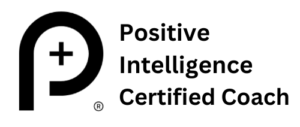How are your eating habits?
Are you one of those people who can have a chocolate bar lying around and just eat a little bit of it each day, maybe even just a few times a week?
Or are you like me, chowing the whole thing down within minutes of opening the wrapping?
Today’s installment of my July habit reboot series focuses on eating, and how self-awareness can help us make more healthful food choices.
Are You a Moderator or an Abstainer?
If small amounts of chocolate (or cookies, or chips, or alcohol — you fill in the blank) satisfy your need for a treat, you’re what Gretchen Rubin calls a “Moderator” in Better than Before: Mastering the Habits of our Everyday Lives.
My husband is a moderator. It’s annoying. He can eat just a couple of Girl Scout Thin Mints at a time, leaving the box in the cupboard for weeks to taunt me.
In contrast, if I open one of those cellophaned stacks of chocolate-covered cookies, I don’t stop eating until I’ve finished them off. I’ve known this about myself for a long time, and have learned to not keep a lot of junk food in the house because of it. If I don’t see it, I don’t crave it.
People like me are called “Abstainers” in Better Than Before. It’s easier for us to go without the treat completely than to have just a little bit.
While it’s easy to tout “everything is healthy in moderation,” moderation for Abstainers isn’t easy at all.
Until the past year or so, I could usually keep my weight under control by healthy food choices (including not keeping “bad” food in the house, much to my children’s chagrin) and lots of exercise. I say usually, because I have also been fat before.
During my stint as a high school exchange student in Turkey, I gained so much weight that my mother didn’t recognize me after I got off the plane. Another year spent in Germany as a college exchange student, with unlimited access to warm pretzels, chocolate croissants, a thousand bread choices, and carb-loaded beer that was a meal unto itself, well…you can imagine. But once I was back home in my normal routine, the weight dropped off.
That changed last summer when I finished my five years on Tamoxifen, the breast cancer medication that blocks estrogen production. As soon as that hormone started flowing again, my weight started inching up, with fat collecting around my middle in particular. Turning 50 that year probably didn’t help from a metabolism standpoint.
Pounds continued to accumulate even while training over the winter for my half marathon in March. How unfair is that?
Better Than Before turned things around for me. Gretchen’s explanation of the all-or-nothing Abstainer mentality — that it takes less energy for us to go without completely than to have to muster the self-control to be moderate — gave me a starting point for a strategy.
The word “diet” automatically makes me want to eat more. Can you relate? I suck at counting calories (too much math). And keeping a food journal — though a proven effective strategy for weight loss — stresses me out. But this new understanding of my Abstainer status allowed me to think in terms of simply changing the way I eat, more or less permanently.
But where to start?
Carbs were clearly the culprit. I knew this from my own reading over the years (fat around the belly, in particular, is attributable to overconsumption of carbohydrates). Gretchen was convinced to jump on the low-carb bandwagon by Gary Taubes’ bestseller Why We Get Fat (And What To Do About It). The book explains how carbs make us (and keep us) fat, even if we’re exercising.
I decided to test my Abstainer capacity for carb reduction by simply cutting out a few things: bread, pasta, rice and potatoes. As soon as I cut these four foods out of my diet, the less I craved them. It became easier to say no to sugary foods as well, especially when the scale quickly confirmed the results.
I still eat my steal cut oats and berries in the morning, so I am by no means completely “carb free.” I still eat fruit, but avoid those higher on the glycemic index.
Oh — one other little change. I stopped drinking alcohol. It wasn’t only to reduce carb intake. I’m really not supposed to drink given the clear link between alcohol and breast cancer recurrence. My oncologist told me six years ago that, if I had to drink, I should limit it to two to three glasses a week. A WEEK. Over the years (as the fear-based motivation subsided), a little more than that crept into my routine.
The truth was, I felt deprived by the limit. If I had one glass in a social setting, I always wanted more. On top of that, I realized that I didn’t like the way my personality trended when I drank. I wasn’t my best self.
So I made the personal decision, based on my cancer history, my mindfulness objectives, and my desire to get rid of the inflating tire around my belly, to not drink alcohol anymore. Exceptions to the rule are weddings and deaths. Maybe I’ll add my kids’ high school and college graduations later on, but it will be a couple of years before I have to decide that.
Results
It’s been two months since I made these changes. Twelve pounds dissolved in the first five weeks or so, and the weight — give or take a pound — has stayed off. I haven’t craved alcohol at all. I haven’t craved bread at all (even though I used to be one of those people who said, “I could never give up bread!”). And, for the first time since becoming a parent, I can keep cookies in the house for the kids without being tempted.
When social situations have provided no other options, I’ve quietly made exceptions, without feeling like I fell off any wagon. I don’t make a big deal about it.
The approach feels sustainable to me. No calorie counting. Bacon’s OK. Half and half in my coffee is OK. And my clothes fit comfortably again. Maybe cleaning out my closet earlier this year to make way for new energy and opportunities helped a bit as well!
Stay tuned for next week’s final edition of my July habit reboot series, where I’ll share the results of an accountability game a friend and I tested out this month.



